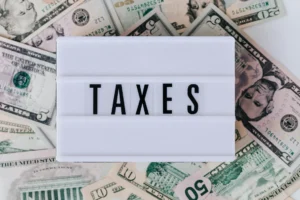
As different updates regarding new taxes implementation are going around in the Netherlands, today’s article aims to focus on the new wealth tax delays in implementation and the consequences of these delays.
The introduction of a new system for taxing the return on assets, commonly referred to as the “box 3” levy, is facing significant delays. Originally slated to be introduced in 2025, the revised tax system now faces uncertainty as the Dutch Tax and Customs Administration struggles with capacity constraints. The administration has been heavily occupied with compensating individuals impacted by serious flaws in the previous tax system, which has left insufficient resources to fully roll out the new system by 2027.
This delay is causing concerns over potential financial losses. According to State Secretary (Finance), each year of postponement could cost the treasury up to €2 billion. The treasury is already projected to lose billions over the next two years as the existing box 3 system has been overturned by the courts, but the new one has yet to come into effect.
Root of the Delay: Compensation Efforts and Legal Backlash
The primary reason for the delay stems from the tax authorities’ ongoing efforts to compensate individuals harmed by the previous box 3 tax system. Under the original version of this wealth tax, returns on assets were taxed based on an assumed rate of return, which was often far higher than what taxpayers actually earned. This system became particularly problematic in periods of very low interest rates when savers and investors found that their real returns fell far short of the assumptions used for taxation. After a series of court cases, the Dutch Supreme Court ruled that this system was unjust, paving the way for its abolition and the development of a new system that taxes actual returns instead.
While these compensation efforts are essential, they have left the Tax and Customs Administration overwhelmed, diverting resources away from the development and implementation of the revised box 3 tax. The State Secretary acknowledges that the workload involved in rectifying past mistakes is enormous, adding pressure to an already complex reform process.
Phased Implementation as a Possible Solution
State Secretary has proposed exploring “alternative implementation options” in an effort to introduce the new system without further financial losses. One potential solution under consideration is a phased implementation, where elements of the new tax could be gradually introduced by 2027. This would allow the treasury to start collecting some revenue while the full system is being built out. Another option is leveraging ICT investments made during the recovery operation, which could also support the new system’s rollout.
Despite these possible solutions, delays still seem likely. The tax authorities have indicated that introducing the new system “in its current form” by the proposed 2027 deadline may be difficult, given the significant work still required.
Consequences of the Delay
The delay has serious financial implications. The existing box 3 system has already been ruled illegal, and every year that a new system is not in place costs the Dutch treasury billions in missed revenue. The government is facing substantial shortfalls, and further delays could significantly impact public finances.
Public Reaction and Future Outlook
The ongoing uncertainty surrounding the wealth tax reform has caused frustration among lawmakers and the public alike. The original goal of the reform was to create a fairer system that taxes real investment income rather than assumed returns, but the repeated delays have undermined public confidence in the process.
With the financial losses mounting and the legal ruling forcing swift action, the government is under pressure to find a viable solution. While the proposals for alternative implementation methods may help mitigate some of the losses, the road to a fully functioning system remains fraught with challenges.
As discussions continue in the House of Representatives, one thing remains clear: any further delays in the implementation of the new wealth tax could lead to significant long-term financial consequences for the Netherlands, both in terms of lost revenue and public trust in the taxation system.
References
NL Times. (2024, September 21). Tax authorities unable to introduce new wealth tax in time, delay could cost billions. Retrieved from NL Times: https://nltimes.nl/2024/09/21/tax-authorities-unable-introduce-new-wealth-tax-time-delay-cost-billions
Photo:
https://images.pexels.com/photos/4386372/pexels-photo-4386372.jpeg?auto=compress&cs=tinysrgb&dpr=2&h=650&w=940



